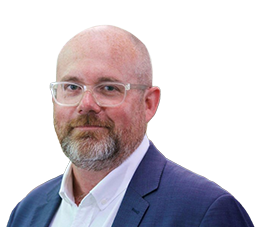Interview with Rachel Mealey, ABC AM
RACHEL MEALEY, HOST: A joint report’s been released by Australia's National Science Agency and the Australian Energy Market Operator on the costs of meeting our future demand for clean power. It compares the cost to build and operate new coal, gas, solar, wind, batteries and nuclear generators. Tim Ayres is the Minister for Industry and Innovation and Minister for Science. He joined me earlier. Tim Ayres, is the government on the right track with the renewables mix you're currently pursuing?
SENATOR TIM AYRES, MINISTER FOR INDUSTRY AND INNOVATION AND MINISTER FOR SCIENCE: Well, the GenCost report released today is an independent, scientific, engineering and economic report. It's very thorough and it backs comprehensively the pathway that the Albanese government has established for the lowest-cost modernisation of the electricity system. That's good for households, it's good for Australian business, and in particular in my area, it's really important for Australian manufacturing to have access to low-cost energy.
MEALEY: The report ranks the relative costs of all of the energy options for Australia's future. It says that black coal is a relatively cheap energy source at the moment. Shouldn't the government look at that in terms of the phase-out plans for coal generation?
AYRES: Well, secondly, it certainly makes it clear that wind and solar backed by renewables, backed by gas, is the cheapest pathway. And then it ranks all of the other technologies that are available, including brown and black coal, nuclear, both large-scale and the smaller reactors. It demonstrates that all of those at varying levels are more expensive than the pathway that the government is on. But of course, we've got to attend to building an electricity system that's fit for purpose for the future. And that does mean making sure that we're delivering on our emissions targets. Now, our black coal in Australia has strong markets overseas for steelmaking processes in particular overseas and I expect that that will continue to flow.
MEALEY: It says that the first time we invest in new energy technologies that'll be the most expensive. So, on that basis, should we drop the idea of things like offshore wind projects and just back the horses that we have in the race now?
AYRES: Well, we don't not do things because they're hard. We have to make a judgement about what's in the national interest. And it would be good to see progress on offshore wind, both because it's, an at scale, more powerful resource. So, particularly in the areas that I'm most concerned about in my portfolio area, having future reserves of offshore wind really matters for manufacturing. For large-scale electricity consumers, having resources like that really matters. Now we're pushing ahead, there is significant progress to be made. None of it's easy. It's not leading a progress. Energy Minister Chris Bowen is working very hard to deliver progress with the states and territories on generation and transmission. And every year of effort makes a difference for Australian efficiency in business and for households.
MEALEY: On nuclear, the report says there are, and I quote, no unique cost advantages arising from nuclear technology's long operational life. Is the debate about nuclear well and truly over?
AYRES: In my area of policy, in industry policy, what it would have meant is less electricity for manufacturing, so less electricity-intensive manufacturing right at the point where the world is moving to electrifying our manufacturing processes. So, manufacturing in Australia closing would have been the consequence of the election of a Dutton government.
MEALEY: What advice would you give Opposition Leader Sussan Ley right now as she faces this revolt within the Coalition over Net Zero?
AYRES: Well, I certainly wouldn't presume to give advice to other political leaders in other political parties, but it's very clear on display in the Senate that there's absolute disunity and a defiance and a sort of schoolyard approach from many in the Coalition who, who are just absolutely thumbing their nose at the verdict that the Australian people gave at the last election and are absolutely focused on themselves and not on the Australian people. It's very clear that that disunity is going to continue for some time, and they really missed the mark on what is in the interest of Australia and Australians in terms of energy policy.
MEALEY: Tim Ayres, thanks for joining AM.
AYRES: Thanks very much, Rachel.
MEALEY: And Tim Ayres is the Minister for Industry and Innovation and Minister for Science.

